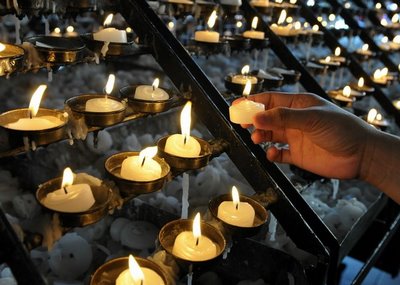I feel very fortunate to have been able to attend today’s event organized by the McDonald Centre for Theology, Ethics and Public Life and the Chatham House. From the letter of invitation:
“The end of the Cold War renewed the possibility of proportionate military intervention in sovereign states with a view to saving civilians from grave and massive harm. Shamed by Rwanda and Srbrenica, and provoked by Kosovo, the international community at the turn of the century began to discuss formally changing international law to affirm a ‘responsibility to protect’, and to permit military intervention for humanitarian purposes. With the invasion of Iraq, however, the momentum for legal reform seemed to run out of steam. Nevertheless, eight years later in 2011, the UN authorised a NATO intervention in Libya.”
Though the organizers could not have directly foreseen this when planning the event many months ago, this discussion becomes particularly important in light of the dramatic and developing situation in Syria. In order to facilitate an open and honest conversation, the discussion is under the ‘Chatham House rules’:
“When a meeting, or part thereof, is held under the Chatham House rule participants are free to use the information received, but neither the identity nor the affiliation of the speaker(s), nor that of any other participant may be revealed.”
I will therefore will simply copy and past some notes I took during the presentations and exchange without revealing anything about who said what. But let me say that I was very impressed with the level of international and interdisciplinary expertise in this room. I don’t have time to organize these notes into a post, but hopefully the notes themselves will be of interest to those who follow these topics and have these concerns.
My main take-away from the discussion was that so much of what was under discussion has to do with with the tensions and parallels between two considerations: (1) self-serving national politics and (2) moral arguments. International law seems like window dressing for other considerations–and I’m not even sure that there is a thing which exists called “the international community.” Anyway, here are my notes:
Session I: The Responsibility to Protect (R2P) in the UN and in International Law
First Speaker
- Rwanda was the starting point of the discussion of the need to violate state sovereignty.
- Tony Blair speech in Chicago: sure of our case, all alternatives, militarily possible, long term preparedness, national/international interests.
- Turn sovereignty on its head? Intervention because only if sovereignty is being abdicated.
- Arguments against: Who gets to decide? Particularly Western device?
- 2006/2007 special adviser for R2P appointed by the security council.
- 2009: context has to be in conflict like genocide, crimes against humanity, ethnic cleansing, etc. (not national disaster).
- Three pillar approach: last resort, give early warning, then military action.
- Sovereignty is a WORSE problem for interventionists after the conflict.
- Syria situation shows that Russia and China are still not with the West
- “Successful” in Libya? Locals seemed to welcome it.
- Some civilians were protected, others were not
- Supported the rebels? Who were we supporting? Combination? Exit strategy?
- If Libya, why not Syria or Yemen?
- R2P has made progress, but still arguments to be made.
- Experience: Claimed to be about humanitarian intervention, but “very few humanitarians actually approve of R2P”
- Authorization is still unclear – not about principle, but politics.
- International law cannot be invoked in any definitive way. “They just change the international lawyers to get their way.”
- We don’t understand the local situation well enough—law of unintended consequences. Occupying force becomes part of the problem rather than part of the solution.
- Issue of consistency? Radically inconsistent? Undermines the principle of R2P.
- Has Libya cleansed the well (after Iraq) for the R2P? No, it might be seen as the last one—too perfect. Broad support, rebels had base, air power alone, regional support.
- Shift responsibility toward regional powers? But they don’t have capacity (practical or political) to do it.
Second Speaker
- R2P remains a State-based notion. Failure of the State to protect population, international community aids the STATE to do it if they can’t.
- It is also a political principle—designed to galvanize political will and energy. Remind States of their existing legal obligations in international law. No new legal obligations.
- Acceptance of a principle that has inconsistency built into it—application in a “case by case basis”?
- Protection of civilians is RELATED to R2P, but they are distinct issues. (R2P broader)
- Shifts language from Rights to Responsibilities. (Really? Isn’t this dangerous?) Would a neutral stance be possible?
- Crimes create an imperative to act? Crimes also create particular, individual responsibility—what about collective/social responsibility?
- Responsibility is NOT understood as a duty.
- Only certain countries have the military capacity? Do States who support R2P have a responsibility to develop the capacity to protect?
- Conclude: not clear who has responsibility to protect? NATO? (Accountability? Went beyond what the UN authorized?)
- Selectivity? Building in inconsistency? “Just because you can’t intervene everywhere doesn’t mean you shouldn’t intervene somewhere.” But this kind of inconsistency erodes legitimacy.
Discussion
- Clinton’s failure with Rwanda was utterly terrible and sets the context for much of this.
- Some countries care about international law and others do not. Makes it difficult to talk about.
- Dramatic shift: State sovereignty now also means responsibility to protect, but only for some. (Not China?)
- Kosovo, International Lawyers say it was “illegal but legitimate.” What does this mean for the authority of law? And in particular international law?
- Problems of looking at it from an international legal perspective? Political judgments are being disguised as legal judgments.
- UK/US coalition came up with “overwhelming humanitarian concern” to act in Gulf War with Kurds and Shiites in the south and Kosovo—primordia of R2P.
- Question about diminished economic capacity—how does that factor into all of this? Response is shared responsibility. UN Army? Burden sharing? Capacity is a choice. Kind of like the question of giving to international development? Actually, the full international community does not accept the R2P. (If you are Chinese or Russian, in particular.)
- Is the ‘inconsistency’ argument really valid? Two just causes doesn’t mean two interventions. Syria might not have the possibility of success that did Libya.
- Gaddfi used speeches that may have even borrowed from the language of Rwanda. What would have been the history of R2P if we had not acted?
- Some want to take a more active role: Turkey, Arab League. Could be supply of equipment, etc.
- Classic North/South argument about where to put resources. R2P vs. development? Latter should win out.
- Trying to have States that have “no dogs in the fight” has eroded—especially because of resources.
Session II: Military Intervention in the Light of Just War Thinking
First Speaker
- More positive spin on the R2P than in the first session
- Rather important step forward
- Things go back and forth (Iraq, Libya…and what now?)
- Libya should be a model for the future for the R2P
- Halted humanitarian disaster—was about to get a lot worse (last resort)
- Right intention (not about oil…actually drove up the price, things were going fine)
- International and local support—competent authority
- Proportionate response (high probability of success)
- 2005 summit on R2P did not have these kinds of principles in their document, but they should have
Second Speaker
What role should consequentialist considerations play? (Probably of success and proportionality?)
- Identifies this focus with the US Bishops and the Challenge of Peace
- These shouldn’t have the first place of consideration. Can’t be precise. It is impossible to be sure about consequences.
- We have a responsibility to be moral and do the right thing, but not a responsibility to be effective because we can’t predict what is going to happen.
- In addition, what is the legitimate authority for the R2P? Especially if we can have an intervention that is “illegal andlegitimate.”
- Iraq war was not about international law—could have been justified by resolutions from the 1990s, depending on political and ethical judgments, about which lawyers have no significant expertise or authority.
Discussion
- Is just war really the best way to think about the R2P? It could be lots of actions that don’t even come close to “war”–arming rebels, surgical strikes with drones, etc.
- Even if we can’t predict all of the consequences perfectly, can’t we predict some of them? And isn’t it reasonable to take good guesses into account?
- Yes, we should take into account of consequences—but not act as if we can predict them very well. Especially when we decide to intervene.
- The view that you don’t have a duty to be effective is unreal. Politically unreal.
- Rome was not on board with Libya—was not seen as proportionate. Could have been an Italian thing though?
- Vatican foreign policy is different from teaching/tradition of the Church. “Can be expected to act like a third world country, because increasingly it is a third-world Church with third-world concerns.”
Third Session: Libya’s Right and Wrongs
First Speaker
- R2P arises out of Pax Americana (1990s) and the burden of the West to intervene
- Now we are in a different context (global economy, pluralism, new actors and values (China, American Debt, etc.))
- Arab awakening has, ironically, brought R2P to the fore—despite the fact that Muslim thought has troubled this Western concept.
- Jihad vs. Just War?
- Foolish to think that there is no national interest in R2P, but the key issue is whether the national interest undermines the humanitarian interest
- Libya’s end result is not clear—different militias in different areas. Police can’t really help people. Not unified.
- Still, it accomplished a lot of good—but it was a fairly unique situation. One last gasp for the R2P?
Second Speaker
- Jury is still out on Libya
- Lack of stability.
- One city has over 250 militias!
- High level of human rights violations. 8500 people detained—innate dislike of black Africans. Torture, etc. (Brought to hospital so they could be tortured some more!)
- Scrutiny of the media is now much less. Role of media in all of this is profound.
- Need far more time to determine if this was a ‘success.’
- Syria: lots of chemical weapons, and many other differences. Can’t compare the two.
Discussion
- Secularization of the values that underpin Just War in Islam is taking place. (Kind of like how Christian just war theory forms our secular Western policy today.)
- Can’t really see the national interest in Libya? Actually hurt the West’s access to oil. Could have simply dealt with the situation itself with a dictator? Just because a place “has oil” doesn’t make it a selfish target.
- Citizens often have an interest in the government doing the right thing. That is a political consideration, a kind of national interest.
- Democratic values are actually very important in the Arab world, but not sure about social values—TBD. (Declining state of women’s rights and status? Rights of religious minorities?)
- Muslim Brotherhood is not a unified force—some are actually quite secular. West forced to take it on the chin and given them support.
- Libya’s action for some was “Gaddifi had to go”, but doesn’t really seem to be about the R2P.
- Will Americans give up on the Middle East–and backing the R2P–because of politics and/or debt? Divergence from Europe? (NATO in Libya without US would not have gone well.)




